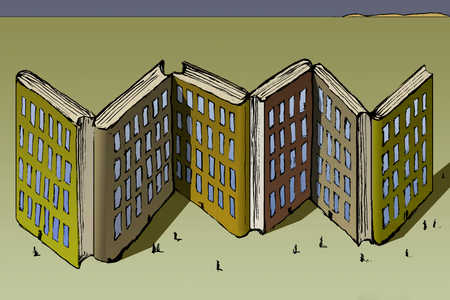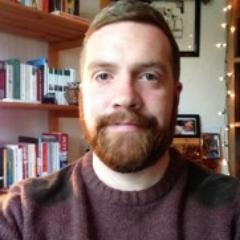A number of years ago I attended a keynote lecture during a national religious studies conference at which an esteemed professor declared in exasperated tones; “What Have They Done To My Buddhism?!” The tension in the room, rising during his overtly confessional presentation, reached a silent crescendo at this exclamation. Even I, as a (very) junior scholar of religion, could tell that this respected elder of the establishment had touched something of a nerve with many in attendance. This was an avowedly Academic Study of Religions conference, being put on by the relatively newly formed Irish Society for the Academic Study of Religion, which proclaims its non-confessional credentials proudly and upfront.
It was in this environment, studying for both my undergraduate degree in Religious Studies and History, and later a Masters in Politics, which I was introduced to Islamic Studies, within the Study of Religions department at University College Cork. I am glad to say that Aaron Hughes’ assessment of the current state of the discipline in the North American context was not my experience in Ireland. To a fairly large extent, it has not been my experience since moving across the small sea to pursue a PhD at the Chester Centre for Islamic Studies (CCIS), within a Theology and Religious Studies department, in the University of Chester.
I have sympathy with some of what Hughes has to say, both in this interview and in his most recently published book Islam and the Tyranny of Authenticity: An Inquiry into Disciplinary Apologetics and Self-Deception. Despite this instinctive sympathy, I feel a level of discomfort with his argumentation. I’m left feeling much the same way I felt in that conference centre during the professor’s claim of offense at what was being done to ‘his Buddhism’. In both cases, an acknowledgement of limitations inherent in our singular perspectives is somewhat lacking. Thomas Tweed draws on Donna Haraway to argue that “self-conscious positioning, not pretenses to universality or detachment, is the condition for making knowledge claims” (Tweed, 2002, 257). While Hughes does go to lengths to explain the position from which he embarks on his academic career in the introduction to Islam and the Tyranny of Authenticity, this self-reflection on the complexity of identity is not really carried through the work, nor is it evident in the interview under discussion. In both the interview, and in the most recent book, Hughes points to an issue of names which struck me as odd. In the interview, Hughes alludes to undergraduate students who contact him to thank him for ‘showing another way’ to approach the study of Islam. He assumes a Muslim identity for these students on account of their Muslim or Arabic sounding names. Again, in the book, names are mentioned when Hughes argues that we can assume Talal Asad has a “personal narrative grounded in postcolonial dislocation” (Hughes, 2015, 53), while theorists with names like Lincoln, Smith, McCutcheon, and we might infer Hughes, may be ‘safely ignored’ due to their names “and not for the force of their criticism” (Hughes, 2015, 53). I found myself thinking, are people surprised when I speak and they hear an Irish rather than German accent (my grandfather originated from Leipzig, bringing his German name with him)? Will my German surname impact on my academic career in anyway which I have not yet envisioned? Should I be focusing on more philosophical avenues to make better use of this name?
As a non-Muslim scholar, working on Islam within the discipline of Religious Studies, actively doing what I would consider (or strive to be) critical scholarship, I can also understand where Hughes is coming from in his concern for the privileging of certain ‘insider’ voices over others. I would have more sympathy if this view was expressed as discomfort with the elevation of specific insiders over others; both insiders who do not conform to a specific type, and outsiders with a more critical approach. It weighs on my mind, particularly when attending conferences with a more direct Islamic Studies slant and a high level of practitioner participation. Will my voice be heard in such a setting? If I raise a more critical point, will my position as a white male result in people in the room, either consciously or sub-consciously, downgrading the importance or value of what it is I have to say? I honestly do not think that this is the case. Attending events hosted by the Muslims in Britain Research Network – a group which actively encourages practitioner involvement in academic study – in recent years, I have never felt that my contribution has been devalued by my positionality. If it was the case that my contribution to any academic discussion was not as appreciated as I may like it to be, I could think of many more reasons for this being the case than my obvious affliction of being a white male, an argument Hughes appears happy to make (Hughes, 2015, 19). We must keep in mind that this discussion is not taking place in a vacuum. As Afroze Zaidi-Jivraj so eloquently argued in a recent piece for the online magazine Media Diversified, being a Muslim in 2016 is to be under constant media bombardment and societal suspicion. It is only right that we ‘white males’ should take time to question our assumptions and identities when engaging in a critical study of Islam(s) and/or Muslim peoples and societal structures.
Again, I can recognise, and sympathise, with some of Hughes arguments regarding the danger of confessional, non-critical scholarship pushing out critical scholars from the academy. If this danger truly does exist, I do not see it being lessened by recourse to an oppositional push back against, and attempting to exclude confessional voices from scholarship. When Hughes argues in the interview that taking a critical approach to our area of study may impact on the possibility of gaining tenured positions or opportunities for career advancement for young scholars, I cannot help but wonder if this also works in the opposite direction. By taking an individual’s theology seriously, does a scholar attempting to do critical work in some way jeopardise their own future career prospects? Will this short blog piece jeopardise my future chances in some American institutions? A real issue alluded to by a friend and colleague with whom I discussed the piece.
It is evident that Hughes is in agreement Russell McCutcheon’s argument that there is a problem of “theology being seen as an academically legitimate pursuit within the study of religion”. In Islam and the Tyranny of Authenticity, this argument comes across in Hughes incredulity that a university press would publish what he considers to be “theology masquerading as scholarship” (Hughes, 2015, 66). But despite my own background in the non-confessional discipline of Religious Studies, I see much value in engaging seriously with scholars of Theology in academic discourse. If we wish to study Islam(s) seriously, be that through a study of early Islamic communities in Europe, converts to Islam in North America, or generational dynamics within transnational Shia networks, we must take seriously the religious understandings of the people who constitute those areas of life.
Much of the interview was taken up with a discussion of the recent controversy around the election of Vice President of the American Academy of Religion[1], and the publication by that same body of a bullet point code of ‘responsible research practices’. Hughes repeatedly remarks that this code is made up of little more than a collection of 25 cent words, with little to offer by way of substance and no real critical reflection. Reading through the document, one can perhaps see his point. It is a call to ‘do no harm’, essentially, an urging to be respectful of fellow academics and recognition that scholarship may be conducted “both from within and outside communities of belief and practice”[2]
A recent debate in print, between the renowned scholar of Islamic Studies Bruce Lawrence, and two academics who were in receipt of a highly critical review from him, provides an example of the danger which Hughes is speaking about as regards a single position dominating the academic space, through a monopolisation of review panels and interview boards. It also, I think provides an example of what the AAR may be referring to when urging scholars to “engage in critical and constructive debate”. In their response to Lawrence’s critique of their work, the academics explicitly call out the “’new orthodoxy’ in Islamic studies” (Mirsepassi and Fernee, 2015, 107), which they argue is particularly prevalent in “fashionable US academic circles” (Mirsepassi and Fernee, 2015, 107). I have not read the book concerned, so cannot comment on the validity of their claim, or the relative fairness of the offending review, but what is clear is that there exists in the United States at the very least a problem of perception; there is the perception that critical scholarship will not get a fair hearing, and there is a perception that theological or confessional scholarship is incapable of being fair. This is disastrous for academic work.
The big tent, which Hughes argues is unsustainable, should be made to hold. We are the ones who can hold it together. Like any large community, we will not always agree with one another, we may often actively and vehemently disagree, and this is healthy. In order to keep the conversation going, and perhaps more importantly, to keep things interesting and keep pushing our own thoughts to new places, we must be willing to engage with those we do not naturally agree with. While the AAR guidelines may be problematic in their broad brush approach, and they certainly lack the nuance we might expect from academic discussion, the intention of fostering civility should be appreciated. Without this holding together of the big tent, if we continue to faction and engage in increasingly partisan conversations, where will the ‘better book’ Hughes is calling for come from?
References
- Hughes, Aaron (2015), Islamic Identities and the Tyranny of Authenticity: An Inquiry into Disciplinary Apologetics and Self-Deception, Equinox, Sheffield
- Lawrence, Bruce B. (April, 2015), Tracking Iranian Cosmopolitan Options – At Home and Abroad: A Review Essay of Iranian Identity and Cosmopolitanism: Spheres of Belonging and Islam, Democracy, and Cosmopolitanism: At Home and in the World, SCTIW Review
- Mirsepassi, Ali,&Fernee, Tadd (2015), ‘Defending the Current Academic Orthodoxy in Islamic Studies: A Response to Bruce Lawrence’, Sociology of Islam3 Issue 3-4, pp.107-124
- Tweed, Thomas A. (2002), ‘On Moving Across: Translocative Religion and the Interpreter’s Position’, Journal of the American Academy of Religion Vol.70 No.2, pp.253-277
[1] essentially President elect due to the way that system works
[2] http://rsn.aarweb.org/responsible-research-practices-statement-standards-professional-conduct-aar-members



